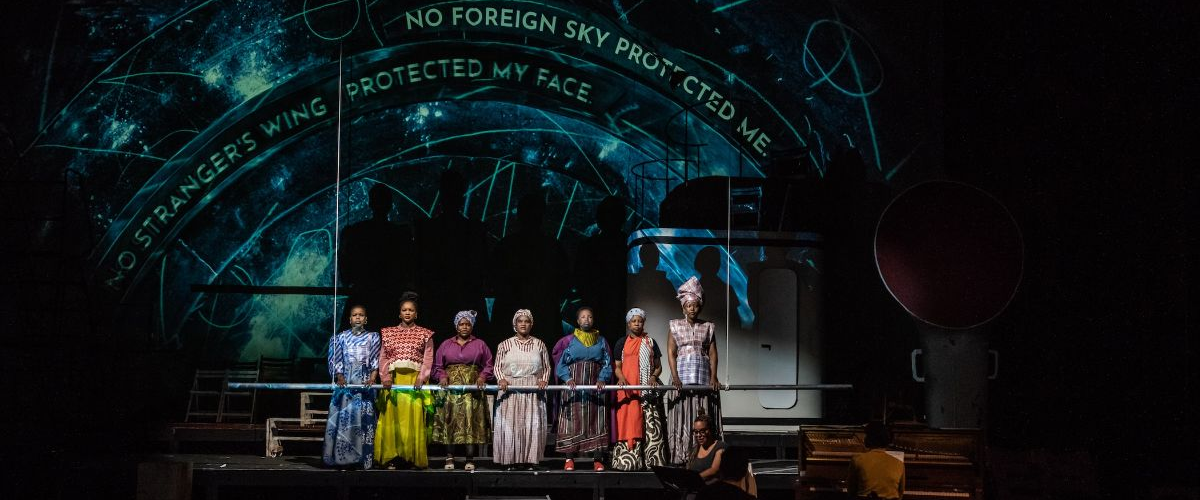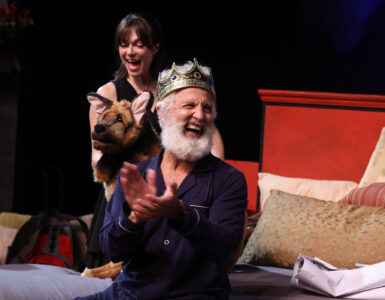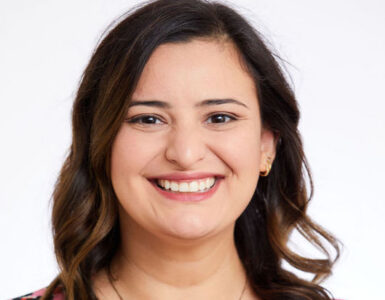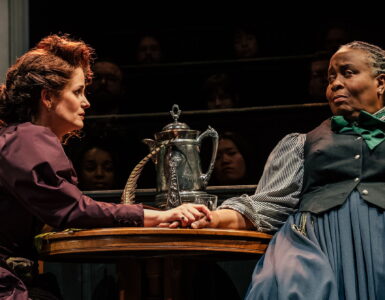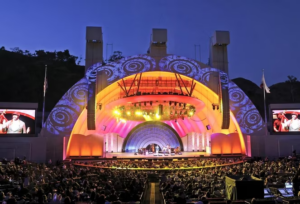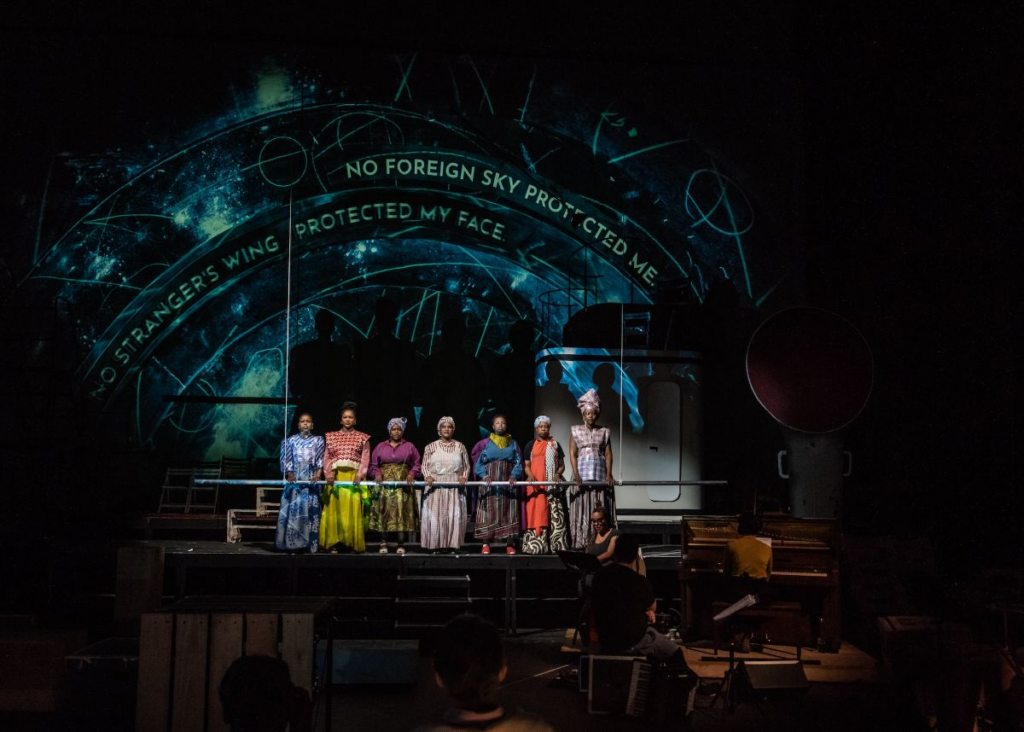
The Centre for the Less Good Idea, Johannesburg—headed by co-founders William Kentridge and Bronwyn Lace—presents Three Less Good Ideas in Los Angeles this February.
During their Los Angeles residency spanning February 1 to 8, 2025, the Johannesburg-based company will stage performances at The Wallis Annenberg Center for the Performing Arts, CAP UCLA’s Nimoy Theater and also at The Broad (museum).
The Centre for the Less Good Idea is an interdisciplinary incubator space, committed to free-spirited experimentation and collaborative-art, based in Maboneng, Johannesburg.
“The Centre is a long-term test of a strategy for making art and making meaning. Is it a viable way of finding understanding, of constructing meaning, or simply a way of making art?”
William Kentridge.
The Wallis, CAP UCLA and The Broad have joined together to present three facets of the work of The Centre for the Less Good Idea:
- A Defense of the Less Good Idea featuring a talk by William Kentridge and Bronwyn Lace and three short form works at The Nimoy Theater at CAP UCLA on Saturday, February 1, 2025 at 8pm Tickets at cap.ucla.edu
- Unsettled Voices at The Broad (museum) on Sunday, February 2, 2025 at 1pm. Tickets at thebroad.org — related works that are also a part of Getty “PST ART: Art & Science Collide” that includes an exhibit and an actual Los Angeles reforestation project.
- The Great Yes, The Great No at The Wallis with five performances Wednesday, February 5 through Saturday, February 8, 2025. Tickets at thewallis.org
With these presentations, the goal is to find the less good idea by creating and supporting these kinds of experimental, collaborative and cross-disciplinary arts projects.
Above photo from The Great Yes, The Great No. Photo Credit: Stella Olivier.
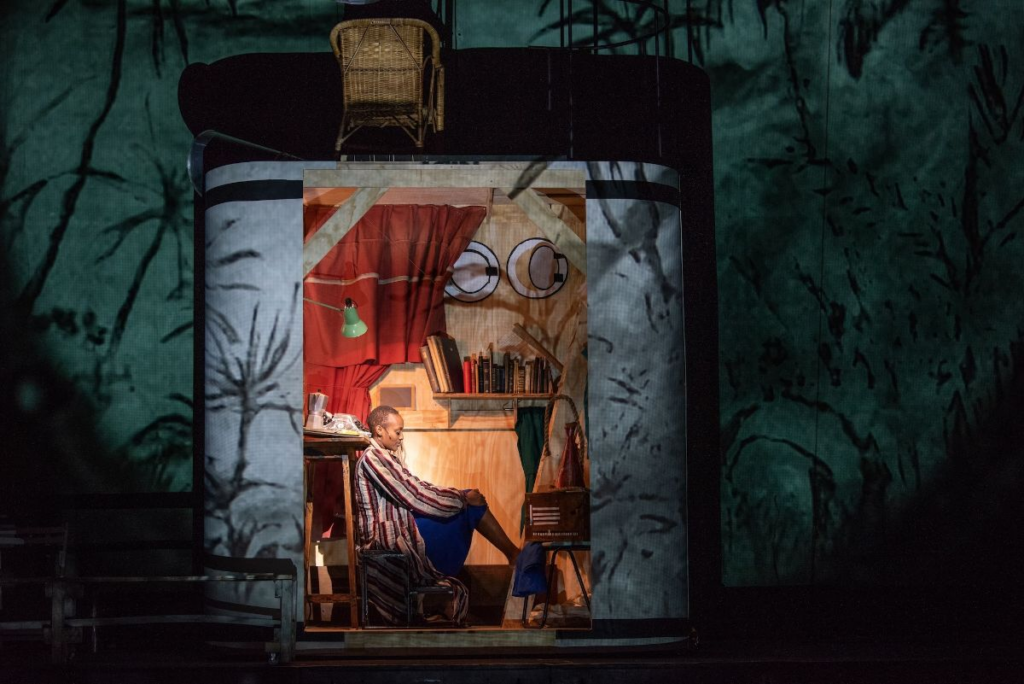
Photo Credit: Stella Olivier.
The Great Yes, The Great No at The Wallis
Five performances Wednesday, February 5 through Saturday, February 8
Tickets at thewallis.org
The Great Yes, The Great No is part play, part Greek choir, part chamber opera – a journey that mixes history with fiction, augments reality, and invites other celebrated figures to join this new kind of ark, an allegory of all the forced expeditions of the past and present.
Created by visual artist William Kentridge (five performances at The Wallis Feb 5-7, 2025) The Great Yes, The Great No is a piece of music theatre that tells of the 1941 historic escape from Vichy France on a cargo ship from Marseille to Martinique by, among others, surrealist André Breton, anthropologist Claude Lévi-Strauss, Cuban artist Wilfredo Lam, communist novelist Victor Serge, and author Anna Seghers. Yes/No is conceived in collaboration with award-winning theater maker Phala Ookeditse Phala and choral composer Nhlanhla Mahlangu.
In Kentridge’s hands, the ship becomes a fantastical menagerie of thinkers, makers, and revolutionaries in a production that merges surrealist imagery with real-life events, lush South African choral music, dance, poetry and anti-rational approaches to language and image.
This real event takes a magical turn when time and space are rearranged and other celebrated figures join this new kind of ark, an allegory of all the forced expeditions of the past and present. These characters include Aimé Césaire, Franz Fanon and the Nardal sisters, the co-founders with Césaire of the anti-colonial Négritude movement in Paris, as well as the West Indian Marxist philosopher Franz Fanon, Josephine Bonaparte, Josephine Baker, Trotsky, Diego Rivera, Frida Kahlo, and Stalin.
Kentridge, a breathtaking visual artist, launches the spectator onto one of his artistic, political and spiritual adventures of which he alone holds the secret: a chamber opera inspired by the avant-gardes of the time, mixing the surreal and irrational with masks, collages, projections shadow play and bold sculptural costumes, with spoken and projected text that explores the relationship between surrealism and the anticolonial Négritude movement.
The online site Crash said, “… takes advantage of the artist’s skills as a visual artist to offer not only a lyrical performance, but also a vast exhibition. It’s this whole that wins us over, a powerful inventiveness of signs and forms that Kentridge manipulates as always with exceptional dexterity.”
The Great Yes, The Great No is part of a three-part residency of The Centre for the Less Good Idea, Johannesburg. Co-Founders William Kentridge and Bronwyn Lace that includes A Defense of the Less Good Idea featuring a talk by William Kentridge and Bronwyn Lace and three short form works at The Nimoy Theater at CAP UCLA on Saturday, February 1 at 8pm and Unsettled Voices at The Broad (museum) on Sunday, February 2 at 1pm with related works that are also a part of Getty “PST ART: Art & Science Collide” including an exhibit and an actual Los Angeles reforestation project.

Photo Credit: Courtesy of the artist, The Broad, and Lunder Institute of American Art.
Unsettled Voices at The Broad
Sunday, February 2 at 1pm
Tickets at thebroad.org
A newly commissioned music, visual, and spoken word performance that invites us to consider the meaning and importance of reconciliation, featuring Indigenous musical artists Lynn
Daphne Rudolph and Lazaro Arvizu, Jr. Co-presented and co-commissioned by Lunder Institute of American Art and The Broad.
This program is a component of the Colby College Museum of Art Lunder Institute, which invites institutions to be in conversation with one another and challenges them to look critically at what is American art, its history, its future, and its evolution. Unsettled Voices continues The Broad’s partnership with The Lunder Institute that will host a series of think tanks on performance art in summer 2025, one of which will be curated by The Broad’s Director of Audience Engagement Edward Patuto.
Lazaro Arvizu Jr. makes and plays musical instruments that are Indigenous to Coastal Southern California. The sound influences from his cultural heritage and an interrogation of important topics create a meaningful musical experience. “My music is derived from a conversation of humans and nature interrupted by the urban setting.”
Arvizu, Jr. is an artist, educator, musician, and researcher dedicated to the culture of the first people of Los Angeles. Born in the Los Angeles Basin, he is knowledgeable of the landscape and cosmology of the Gabrielino culture. He has worked for over 20 years facilitating creative and meaningful cultural experiences to people of all ages and walks of life, in many venues. Lazaro has been working with The Broad on its Pacific Standard Time Project, Social Forest: Oaks of Tovaangar, and the accompanying education programs that teach students about Tongva knowledge, ways of living with nature, and the importance of native plants.
Lynn Daphne Rudolph is an award-winning violist and internationally acclaimed multi-disciplinary artist from South Africa. Daphne’s unique artistic approach examines how sound can serve as a transformative element within the context of Western art practices.
Daphne is drawn to sound as protest to express and transmute the injustices of colonialism, apartheid, and imperialism. As a performer whose work is rooted in research, one of the many ways they choose to explore sound as protest, is through improvisation as a form of liberation. “To explore beyond the limitations of conditioned beliefs, is to resist colonial philosophies.”
Daphne is the national title holder for the South African Strings Foundation Competition in 2022 as well as the international winner of the Mabel Quick International Competition in 2019. Most recently, Daphne has been awarded the Mail and Guardian prize as the Top 200 Young South Africans for Art and Entertainment.
Recent works include Daphne’s sound-based resistance piece, “Dop is my Taal,” at William Kentridge’s “Centre for the Less Good Idea,” shedding light on the historical significance of the “dop system” (alcohol system) as a tool for colonialism and the erasure of Indigenous communities. Through this piece, Daphne is able to offer a South African audience the opportunity to explore their own means of resistance towards the apartheid system and question their individual relationship to protest. Daphne stands as a prominent figure in the world of classical music and sound art, using their art to explore, challenge, and contribute to important conversations around identity, colonialism, and social justice.

Photo Credit: Courtesy of CAP UCLA.
A Defense of the Less Good Idea
at The Nimoy at CAP UCLA
featuring talk by William Kentridge and three short form works
Saturday, February 1 at 8pm
Tickets at cap.ucla.edu
Mnquma
Mnquma is a performance about identity, self-discovery, and the journey of reconnecting
with one’s ancestors in order to achieve a sense of belonging. Boyhood, rites of passage and
the subsequent journey to becoming a man are themes that performer Xolisile Bongwana
grapples with throughout, sometimes through music and the spoken word, but largely through dance – a tightly choreographed narrative communicated through a performance that’s both
fluid and feverish, contemplative and compelling.
Conceptualiser | Xolisile Bongwana
Choreographers | Xolisile Bongwana & David April
Rehearsal Director | Shanell Winlock
Dramaturge | Katleho Sekhosana
Performer | Xolisile Bongwana
Commission Continua
“180million tons of paper used per year, R200million spent per commission. Yes, our inquiries are so important that we have to commission them. We record them and then we print them for our mental landfills and then we repeat the chorus of our traumas.”
Paper is a shrewd and incisive metaphor in Commission Continua. Conceptualised by Tony Miyambo and Phala O. Phala and performed by Miyambo, the play traces the history of some of South Africa’s commissions of enquiry – The Truth and Reconciliation Commission and the Marikana Commission of Inquiry being two of the most infamous ones. Miyambo plays the part of a dedicated office worker who, like the nation’s own veneration of the historical archive, is somewhat obsessed with paper and what it represents. Through his embodiment of the extraordinary pain of ordinary people, the performance renders tangible the enduring traumas of the past and present.
Conceptualisers | Tony Miyambo & Phala Ookeditse Phala
Performer | Tony Miyambo
Umthandazo
Taking its lead from the oft-overlooked victims of South Africa’s 2012 Marikana Massacre, Umthandazo employs an all-women cast to unpack the lives of the widows, children and mothers of the Marikana victims, who have come to collect the spirits and mourn the dead. Singing takes the form of prayer, tribute, mourning, perseverance and more, as performers shift between the roles of mourner and victim, and the women take turns sifting through the personal effects – boxing gloves, suit jackets, a gumboot, a bouquet of flowers – of those lost to the mines, to memory, to murder. It is through these short, affecting vignettes that we can better understand the lives of those lost, the human cost of labour, and the heavy weight of grief for those left behind.
Conceptualisers | Asanda Hanabe, Faniswa Yisa, Buhle Mazibuko, Sibahle Mangena, Anathi Conjwa, Elma Motloenya, Zandile Hlatshwayo & Molebogeng Phiri
Director | Asanda Hanabe
Performers | Asanda Hanabe, Anathi Conjwa, Zandile Hlatshwayo, Khokho Madlala, Mapule Moloi, Nomathamsanqa Ngoma & Thuli Magubane.


